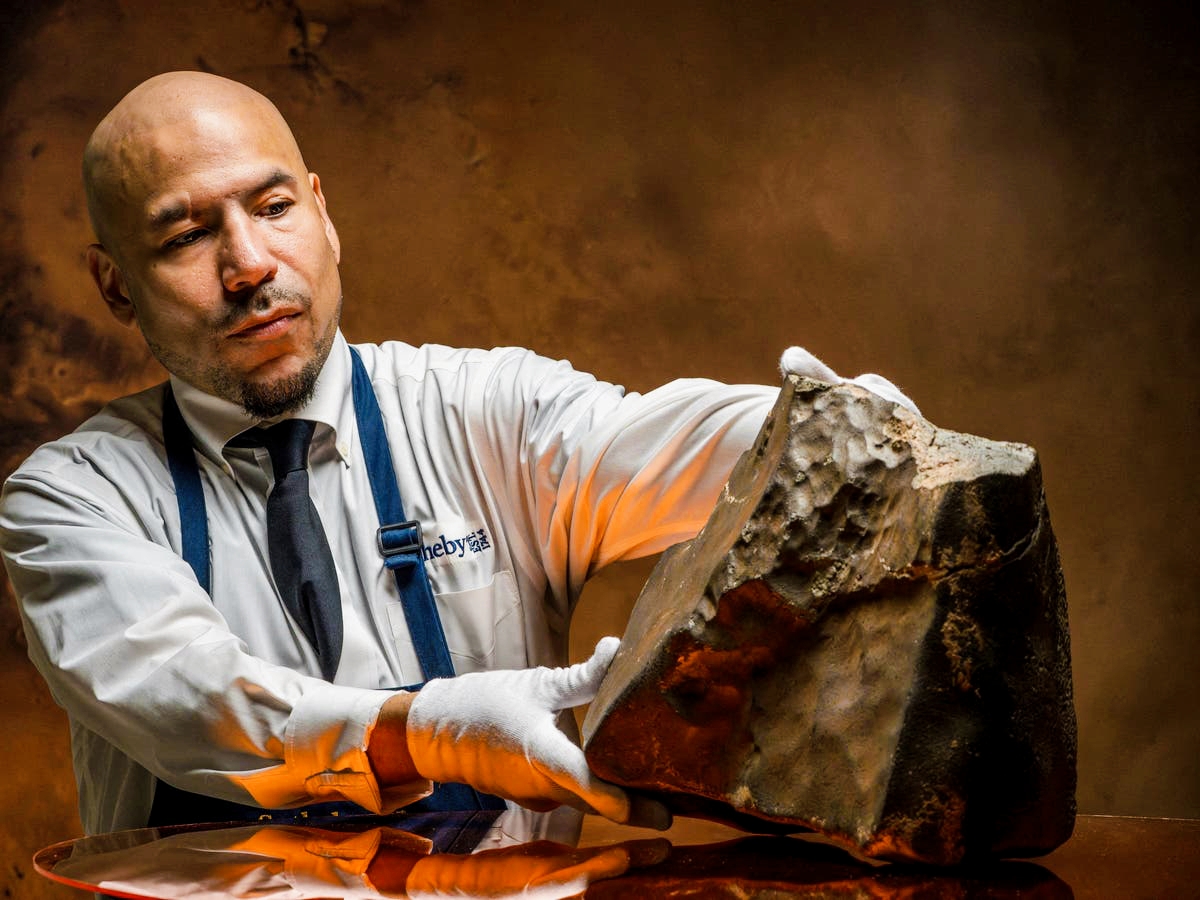The sale of a massive Mars meteorite in New York has sparked an international crisis, after the Niger government announced the opening of an official investigation following a public auction held on July 16, 2025, during which the famous "Sotheby's" auction house sold a meteorite weighing about 25 kilograms, described as the largest Mars meteorite found to date, for a record amount exceeding 5 million dollars, to an unidentified buyer.
The rock, named NWA 16788, was discovered on November 16, 2023, by what is known as a "meteorite hunter" in the remote Agadez region of northern Niger.
It then made its way to global markets, where it was sold to an international dealer, then temporarily displayed in Italy, before appearing in the auction catalog in North America.
However, Niger did not remain idle, as its government announced a suspension of the export of gemstones and meteorites until further notice, indicating that the case "likely bears all the hallmarks of illicit international trafficking," according to an official statement.
While "Sotheby's" denies these allegations, asserting that the meteorite was transferred and sold "in accordance with applicable international procedures," it indicated that it is reviewing the file internally amid the escalating controversy.
For his part, American paleontologist Paul Sereno, who has worked closely with authorities in Niamey, expressed his outrage, confirming that "the identities of all the individuals involved in this story remain confidential," and added:
"If this meteorite had been captured while moving through the atmosphere, it could have been claimed, but since it fell within Niger's borders, it belongs to the state, even if its origin is Mars."
The case is complicated by the absence of a unified global legal framework for meteorite ownership;
in the United States, for example, ownership of the meteorite belongs to the landowner on which it falls, if it is private land.
In Niger, the state has a law protecting its cultural and natural properties, including "rare mineral specimens," as noted by the professor at the National Museum of Natural History, Mathieu Gonel, and his father Max Gonel, a geology professor.
The crisis does not stop at the legal aspect alone, but also raises ethical and scientific questions, as the rock sold is considered a unique scientific treasure, given its enormous size compared to any other Mars meteorite, making it an exceptional testament to the geological history of the red planet.
Professor Sereno called in this context for the meteorite to be returned to Niger, stating:
"In my opinion, this is not something that should be sold at auction, with the risk of disappearing forever in a vault or behind the glass of a wealthy individual. This is a scientific heritage that should be accessible to researchers and to the people."
In light of the mutual accusations and the ambiguity surrounding the journey of this rock since its discovery, the question remains:
Can Niger reclaim what it considers a national treasure? Or will this meteorite, which traveled millions of kilometers from Mars, get lost amid a web of interests, brokers, and obscure laws?

